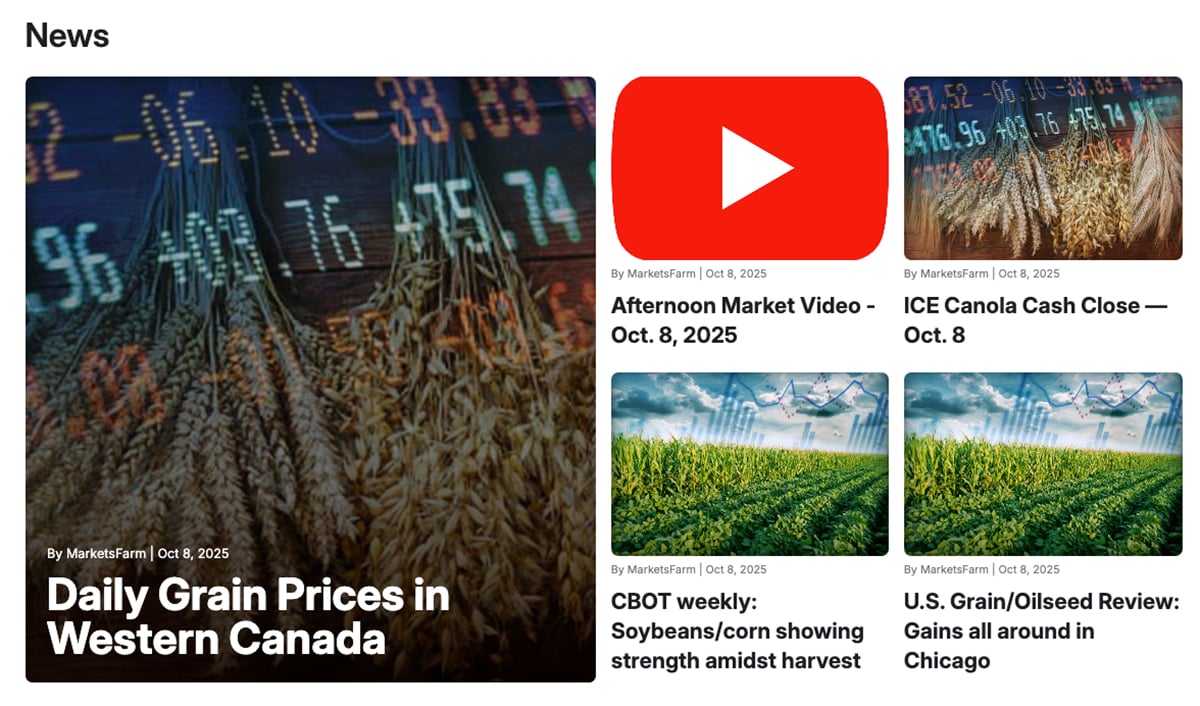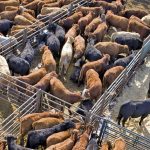Drop for hog prices
Hog prices on both sides of the border fell last week.
American retail pork demand improved as the week progressed, but did little to reverse falling hog prices in the United States.
Iowa-southern Minnesota average hog prices (at plant mean, 51-52 percent lean, live equivalent) opened the week at $50.17 (U.S.) per hundredweight, but decreased daily.
Prices rose slightly on July 28 as some packers needed hogs for Saturday kills, closing at $49.99 per cwt., up 18 cents from the week before.
Read Also

VIDEO: Catch up with the Western Producer Markets Desk
The Western Producer Markets Desk provides daily updates on agricultural markets, with recent video commentary including looks into canola, wheat, cattle and feed grains.
Manitoba Agriculture said analysts expect pork demand to start tapering off due to higher retail pork prices and strong competition from beef and chicken.
This has not happened yet and, with hog marketings projected to remain about three percent below year-earlier levels during the rest of this summer and into the fall, cash hog prices are likely to average in the mid-to-high $40s per cwt. for the next three months at least.
But if USDA’s hog inventory report results are correct, hog marketings could start to increase in early 2001. Some analysts say this could test American packing plant capacity in fall 2001.
Cattle prices down
Fed cattle prices slipped again last week with average weekly prices $1.25-$1.50 per cwt. lower.
United States fed cattle traded late in the week at $2 (U.S.) per cwt. lower while feeders and calves were $1-$2 lower. Canfax said the lower U.S. market and higher Canadian dollar early in the week pressured prices here, but the Canadian dollar weakened again later in the week, which stabilized and slightly firmed prices at the close.
Some cattle that had been previously passed were traded.
Discounts on heavy cattle started appearing.
Alberta prices July 27 were steers $87.75-$90.05 per cwt., flat rail $147-$148.50 and heifers $90.25 and flat $148.60.
Eastern Canadian demand is down and the Montreal wholesale price fell $3 per cwt. to $146-$147.
In Calgary, handyweight steer prices are steady to $1 lower with steers at $141-$156 and heavyweights at $136-$139. Carcass weights keep moving higher at 821 pounds in Canada.
Canfax said fed cattle prices should be steady, but could fall more if there is a heavy offer.
Cow prices
Cow prices were steady to weak. Light volumes are influencing the marketplace.
Canfax said an uneven grinding market has kept packers cautious.
Some auction rings expect volumes in drought affected areas to increase as early as this week. Most D1, 2 cows traded from $60-$70.
Feeder cattle prices were steady and volumes increased across southern Alberta.
Canfax said auction market operators felt that drought concerns played a part in the higher numbers on offer but overall, the strong market was the main factor.
Volumes are expected to pick up in the next week or two, particularly if southern Alberta remains dry.
But the extra numbers should not push down prices.
However, if fed cattle prices fall, that could cause heavier feeder prices to dip.
In stock cow trade, markets were thinly tested. Bred cows ranged from $875-$1,250 with bred heifers from $800-$1,100. Cow-calf pairs sold from $900-$1,810.
















